Pain Faces Scale Printable
Pain Faces Scale Printable - Web explain to the person that each face is for a person who feels happy because he has no pain (no hurt) or sad because he has some or a lot of pain. Usual tone & motion to limbs uneasy, restless, tense;. Ask the child to choose. Web pain assessment scales the national initiative on pain control™ (nipc™) has provided these diagnostic tools to assist you in assessing the severity and quality of pain. The scale shows a series of faces ranging from a happy face. Face 0 is very happy. Children match their level of pain. Infants should be observed for one minute in order to fully assess each indicator. Web explain to the person that each face represents a person who has no pain (hurt), or some, or a lot of pain. If you look at the picture to the left,. “the faces show how much pain or discomfort someone is feeling. Web the scale consists of six faces that range from no pain at all to the worst pain imaginable. Web this rating scale is recommended for children ages 3 and older. It was adapted from the faces pain scale [ 2 ] to make it. “the faces show how. Infants should be observed for one minute in order to fully assess each indicator. Web see the nips scale for the description of infant behavior in each indicator group. Ask the child to choose. Children match their level of pain. The face on the left shows no pain. Web pain assessment scales the national initiative on pain control™ (nipc™) has provided these diagnostic tools to assist you in assessing the severity and quality of pain. Point to each face using the words to describe the pain intensity. Web explain to the person that each face represents a person who has no pain (hurt), or some, or a lot. Web the faces pain scale shows reliability and consistency when pain ratings are assigned by children, especially as they are associated with related pain experiences. Web see the nips scale for the description of infant behavior in each indicator group. Web explain to the person that each face is for a person who feels happy because he has no pain. Video now availablecurated by expertsintegrated in adobe apps “the faces show how much pain or discomfort someone is feeling. Children match their level of pain. Face 0 doesn’t hurt at all. The face on the left shows no pain. “the faces show how much pain or discomfort someone is feeling. Explain to the person that each face is for a person who feels happy because he has no pain (no hurt) or sad because he has some or a lot. Rating scale is recommended for persons age 3 years and older. “the faces show how much pain or discomfort. Face 2 hurts just a little bit. Face 4 hurts a little. Web see the nips scale for the description of infant behavior in each indicator group. The emotional faces range from smiling to grimacing. Adults and children (> 3 years old) in all patient care settings. Rating scale is recommended for persons age 3 years and older. It was adapted from the faces pain scale [ 2 ] to make it. Point to each face using the. Infants should be observed for one minute in order to fully assess each indicator. Web pain assessment scales the national initiative on pain control™ (nipc™) has provided these diagnostic. Web the faces pain scale shows reliability and consistency when pain ratings are assigned by children, especially as they are associated with related pain experiences. The emotional faces range from smiling to grimacing. “the faces show how much pain or discomfort someone is feeling. Face 4 hurts a little. The face on the left shows no pain. Infants should be observed for one minute in order to fully assess each indicator. If you look at the picture to the left,. Web explain to the person that each face is for a person who feels happy because he has no pain (no hurt) or sad because he has some or a lot of pain. Rating scale is recommended. Web explain to the person that each face represents a person who has no pain (hurt), or some, or a lot of pain. Web ask the person to choose the face that best describes how he is feeling. Web the scale consists of six faces that range from no pain at all to the worst pain imaginable. Face 0 doesn’t hurt at all. Web explain to the person that each face is for a person who feels happy because he has no pain (no hurt) or sad because he has some or a lot of pain. The face on the left shows no pain. Face 0 is very happy. The emotional faces range from smiling to grimacing. Point to each face using the words to describe the pain intensity. Web the faces pain scale shows reliability and consistency when pain ratings are assigned by children, especially as they are associated with related pain experiences. The face on the left shows no pain. Web pain assessment scales the national initiative on pain control™ (nipc™) has provided these diagnostic tools to assist you in assessing the severity and quality of pain. Face 2 hurts just a little bit. Point to each face using the. Web this rating scale is recommended for children ages 3 and older. Explain to the person that each face is for a person who feels happy because he has no pain (no hurt) or sad because he has some or a lot.
Printable pain scale faces 1 10 delightvsa
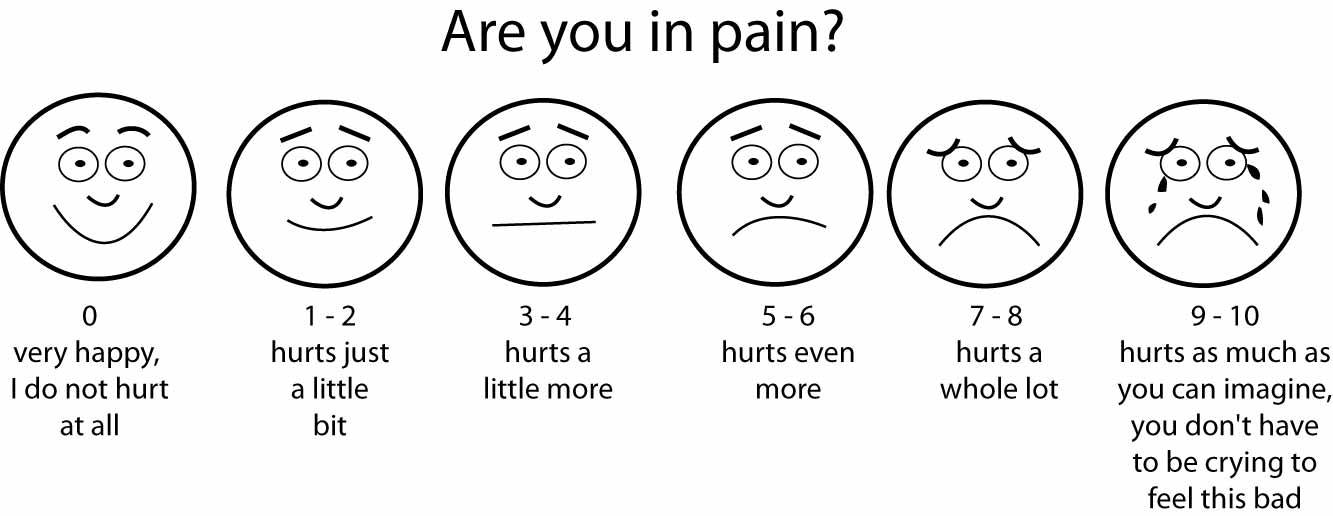
Pain Level Chart With Faces

Printable Pain Scale Faces
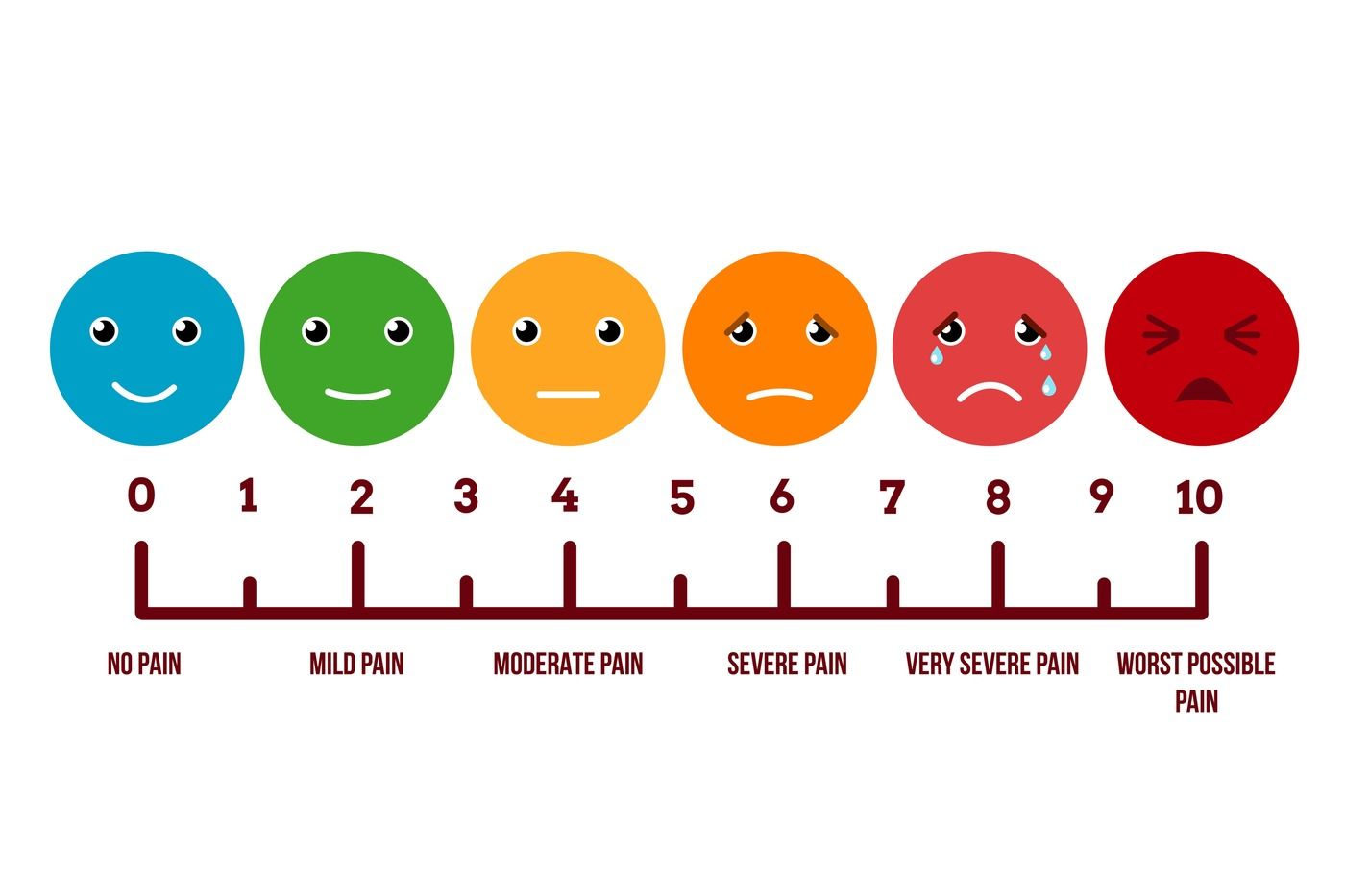
Printable Faces Pain Scale Chart
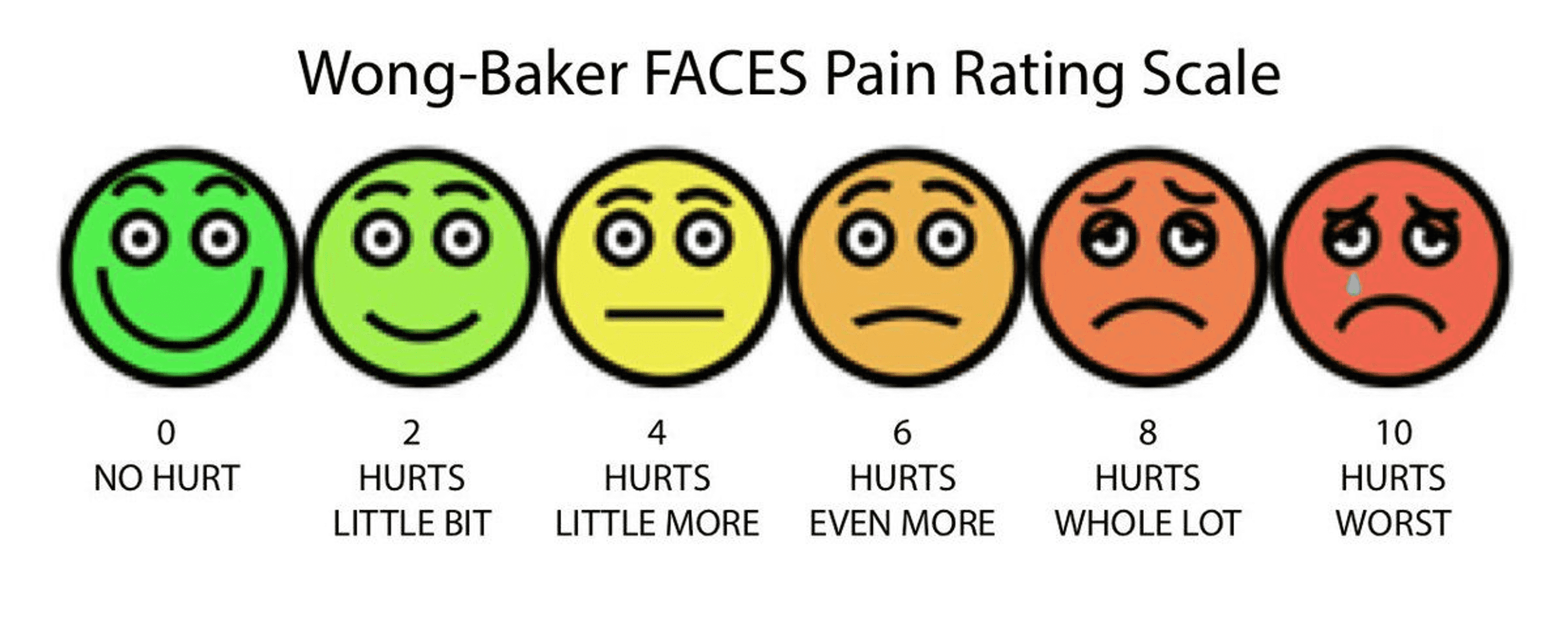
Cureus Phase 2 Assessment of a New Functional Pain Scale by Comparing
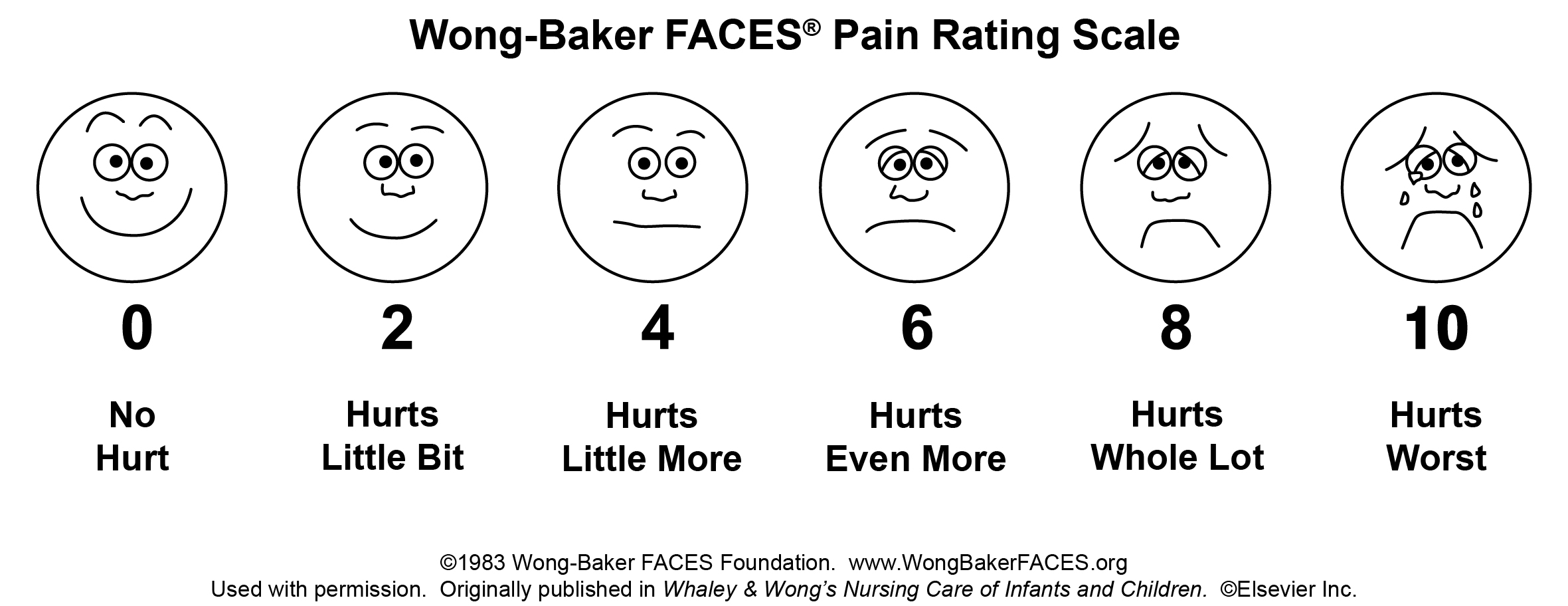
Printable Pain Scale With Faces Customize and Print

Printable Pain Scale Faces

Printable Faces Pain Scale
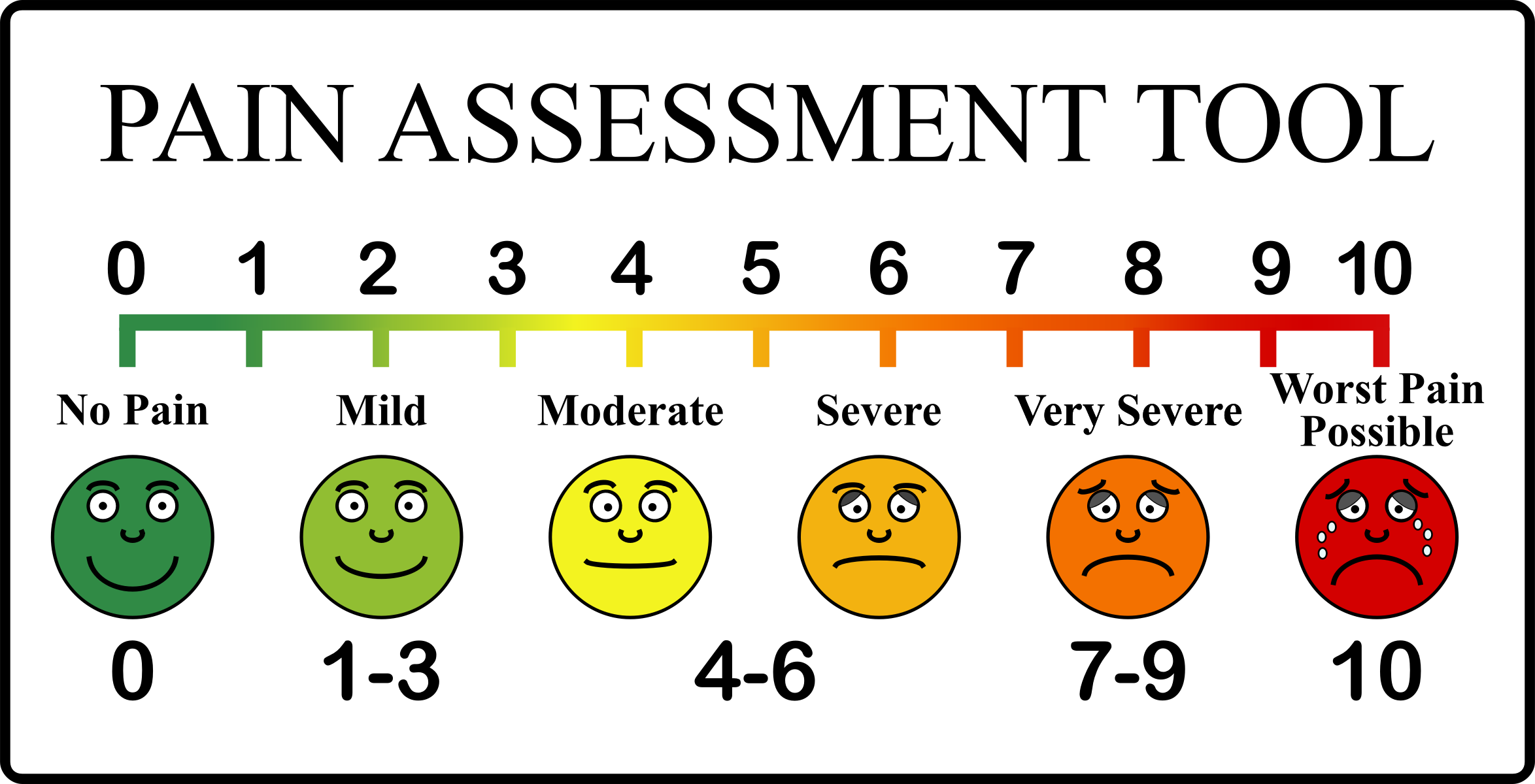
Free Printable Pain Scale Chart 1 10 Printable Templates

Printable Pain Scale With Faces
It Was Adapted From The Faces Pain Scale [ 2 ] To Make It.
“The Faces Show How Much Pain Or Discomfort Someone Is Feeling.
Infants Should Be Observed For One Minute In Order To Fully Assess Each Indicator.
Web See The Nips Scale For The Description Of Infant Behavior In Each Indicator Group.
Related Post: